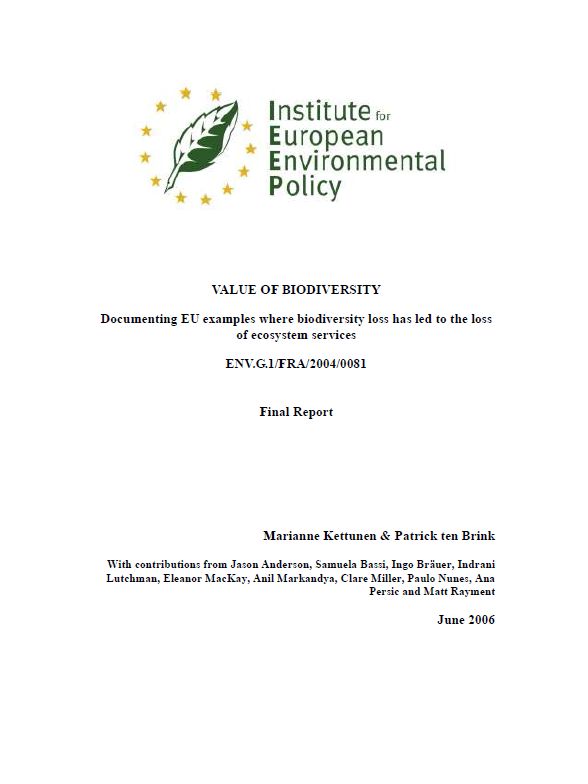Escalating human impact on ecosystems is increasingly affecting the capacity of eco-systems to provide services critical to human well-being. The objective of this project is to document EU examples where decreasing bio-diversity has led to the loss/degradation of ecosystem services, and consequently to economic costs and/or social losses. Therefore, 37 relevant examples from 18 Member and Accession States within the EU were analysed. The final project report is available for download.
The outcomes of this scoping study clearly demonstrate that throughout the EU a wide range of bio-diversity-related services, provided by a variety of ecosystems, have been lost or degraded. The case studies reveal different levels of bio-diversity loss and underlying causes associated with the loss of ecosystem services, including: loss/degradation of ecosystems and habitats, changes in species population levels and species composition, and decline in the number of species.
The survey on the loss of ecosystem services due to and/or associated with the loss of bio-diversity resulted in 37 relevant examples from 18 Member and Accession States within the EU. Ten case studies have been analysed in detail.
The most frequently lost/degraded services include food and fresh water (e.g. marine and fresh water resources), water purification and waste management, water regulation, erosion control and a range of cultural services (e.g. recreation and tourism).
Habitat alteration and destruction appears to be the most common direct reason behind the loss of biodiversity and related ecosystem services. Additionally, over-extraction of resources, pollution, eutrophication and changes in ecosystem species composition (e.g. introduction of invasive alien species) have often contributed to such loss.
One prominent example is the North Sea ecosystem and the failed reproduction of fish stocks. Cod biomass has declined from a peak of 250,000 tonnes in the early 1970s to less than 40,000 tons in 2001, resulting in substantial losses in fishing industry.
The case studies show that the losses are often not immediately apparent and become more prominent in the long run. Losses may also manifest themselves in a different ecosystem and/or socio-economic sector more prevalently than the benefits, making the detection of costs even more difficult.
The final project report is available for download [pdf, 1 MB, English].
The project is the 12th specific agreement under the Framework contract with the European Commission, DG Environment on economic analysis in the context of environmental policies and sustainable development.





